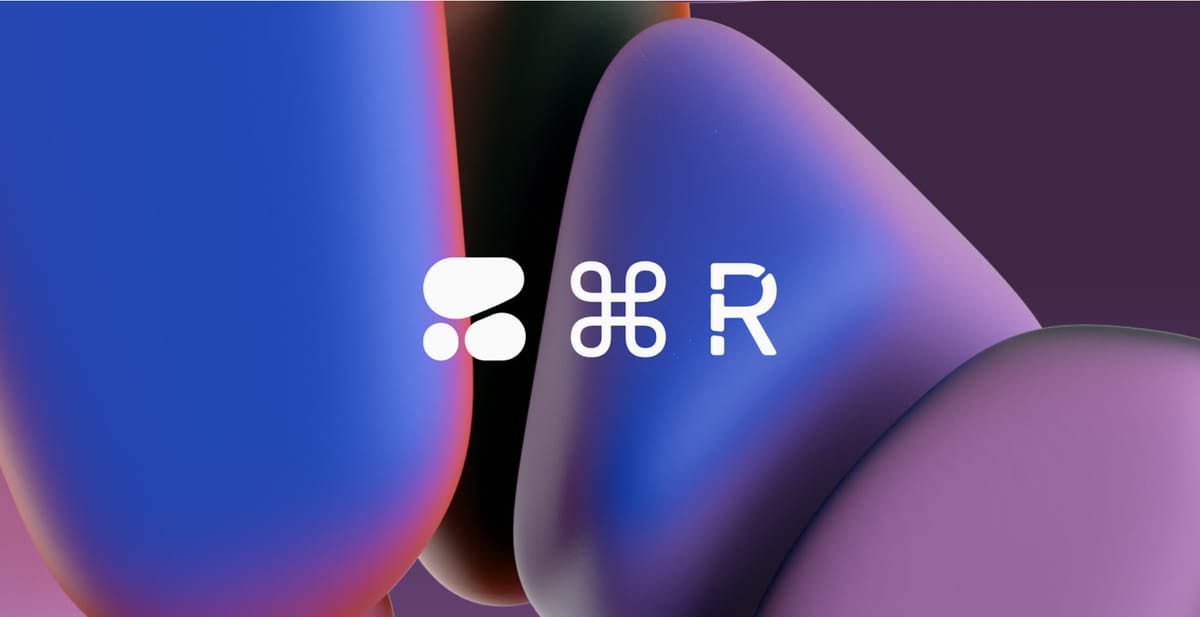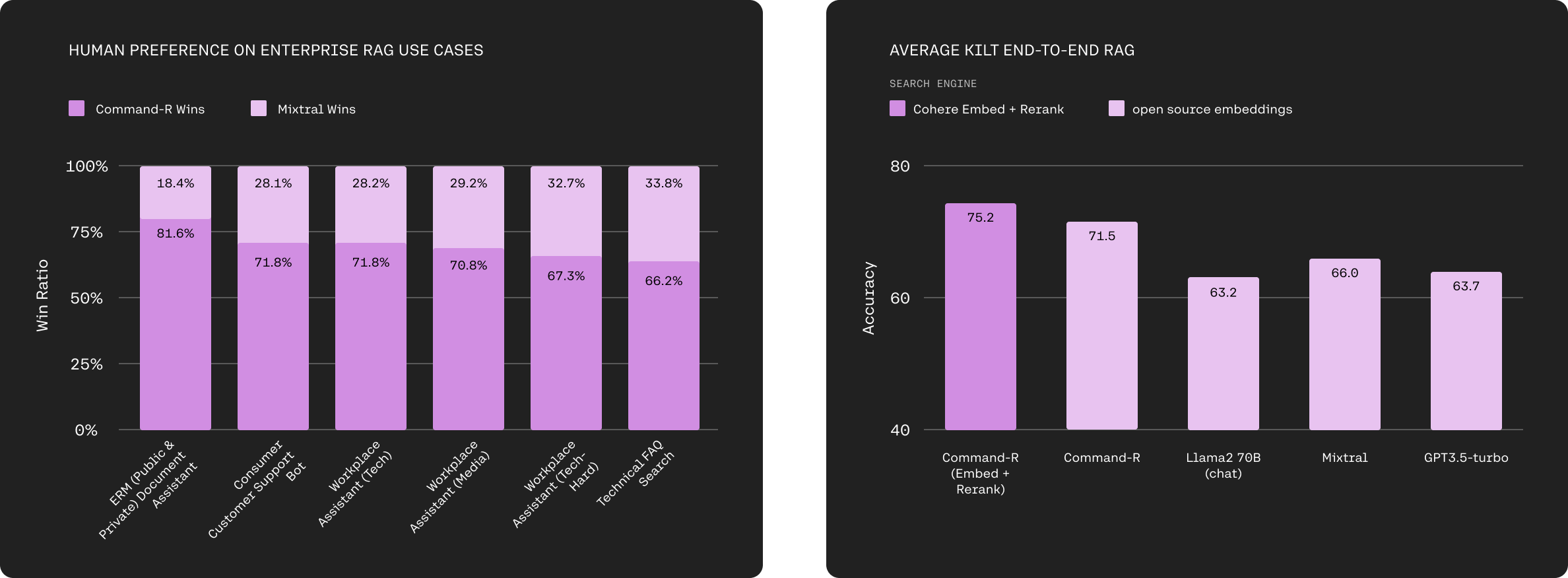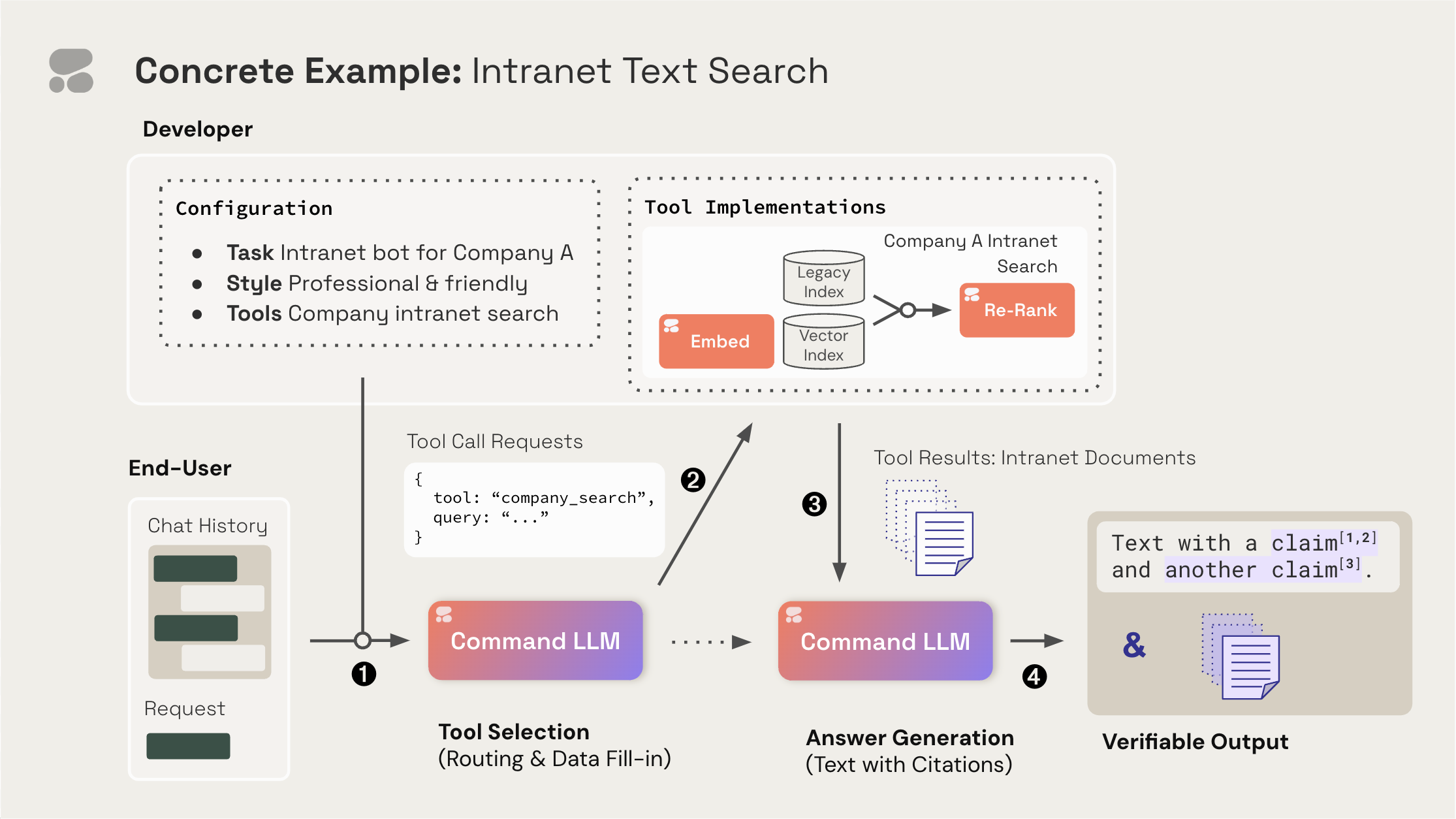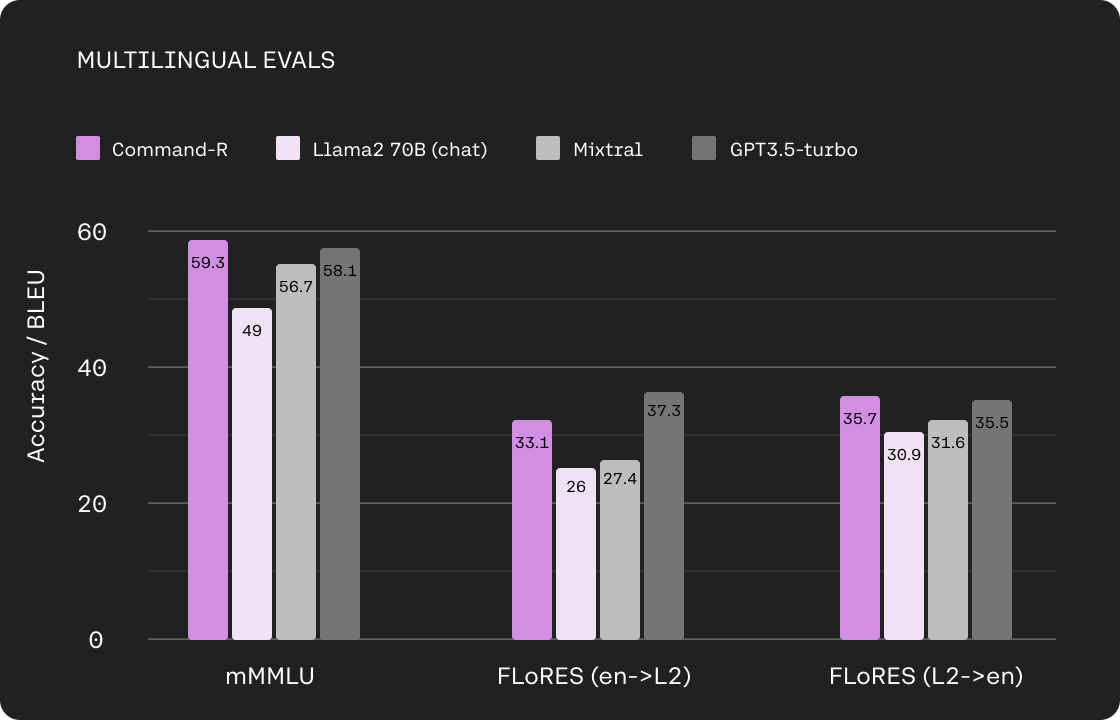
Cohere, a leading provider of AI solutions, has unveiled Command-R, a new scalable language model designed to power enterprise-grade retrieval augmented generation (RAG) and tool use applications. As businesses increasingly look to transition from AI proof-of-concepts to production deployments, Command-R offers a compelling balance of efficiency and accuracy.
Command-R is part of an emerging category of "scalable" AI models that prioritize high performance and cost-effectiveness. It seamlessly integrates with Cohere's Embed and Rerank models to deliver best-in-class RAG capabilities. Notably, Command-R's outputs include clear citations, mitigating the risk of hallucinations and enabling users to easily access additional context from source materials.

Command-R's support for tool use is a game-changer for enterprise developers. This technique allows developers to connect the model to external tools such as search engines, APIs, functions, and databases, enabling a richer set of behaviors by leveraging data stored in these tools, taking actions through APIs, interacting with vector databases, querying search engines, and more. This is particularly valuable for enterprises, as a significant amount of their data resides in external sources.
With tool use, a wide range of new use cases becomes possible. For instance, developers can ask Command-R to recommend a tool or set of tools to use and provide instructions on how to use them. This allows chatbots to interact with CRMs to change the status of a deal or engage with Python interpreters to conduct data science analyses. Another popular application is transforming user messages into search queries for vector databases or search engines, enabling work assistants to automatically search across different databases and platforms to retrieve relevant information or conduct comparative analyses.
The process of tool use involves four key steps. First, developers tell Command-R which tools it can interact with and how to structure interactions, such as API requests or anything that can be formatted in JSON. Command-R then dynamically selects the appropriate tools and parameters for these interactions. Next, developers execute these tool calls and receive tool results in return. Finally, to generate the final response from the model, developers submit these tool results back to Command-R.

It's important to note that developers are responsible for executing tool calls and submitting final results to Command-R. This ensures that businesses maintain control over their data and can integrate the model with their existing systems and workflows.
By enabling tool use, Command-R empowers enterprises to unlock the full potential of their data and systems, streamlining complex workflows and driving automation across a wide range of applications. As businesses increasingly look to leverage AI at scale, this capability will be essential for delivering high-impact solutions that integrate seamlessly with existing enterprise infrastructure.

In addition to its RAG and tool use capabilities, Command-R boasts an expanded context window of up to 128k tokens and improved pricing on Cohere's hosted API. The model also delivers strong performance across 10 key languages, including English, French, Spanish, Italian, German, Portuguese, Japanese, Korean, Arabic, and Chinese.

To support the machine learning research community, Cohere's non-profit research lab, Cohere For AI, has released the weights for this version of Command-R on HuggingFace. While commercial use requires a license, the public release enables researchers to independently evaluate and build upon the model.
As enterprises navigate the transition from experimentation to production-scale AI, Cohere is worth considering. It offers a trusted, scalable solution that prioritizes data privacy and cloud choice. With the launch of Command-R, businesses now have a powerful new tool to drive innovation and automation across their operations.

